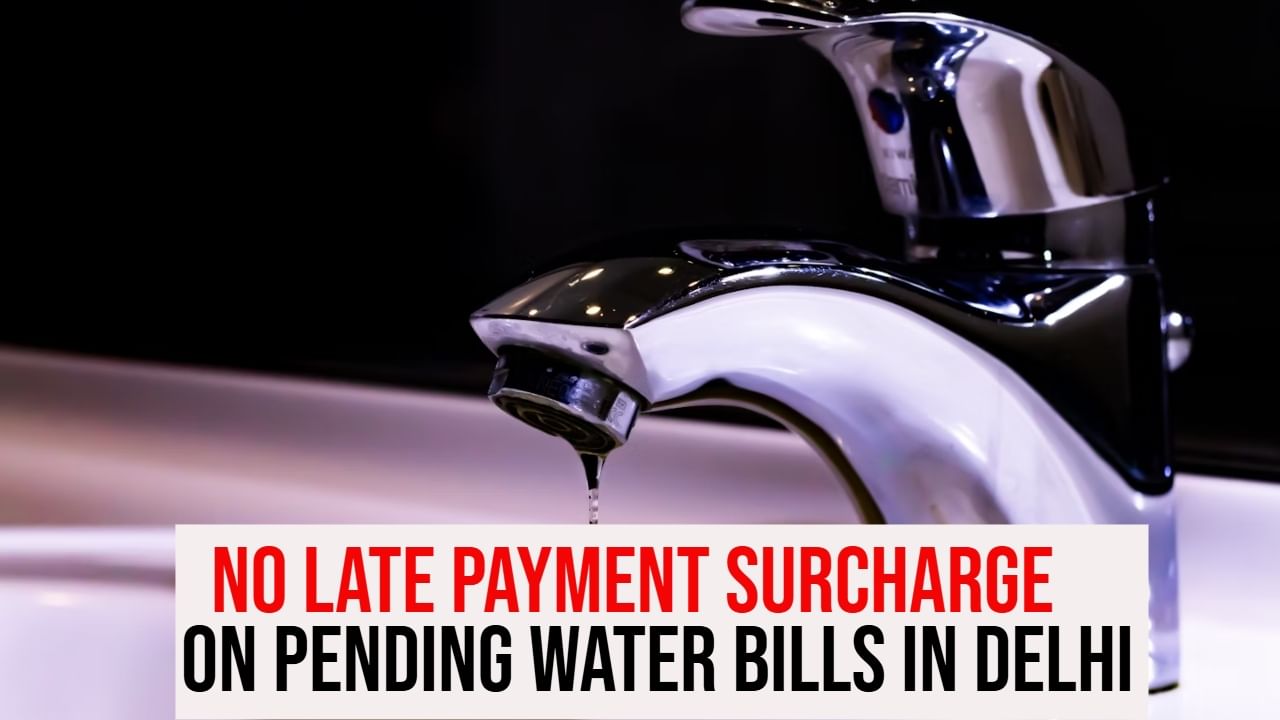New Delhi: Water Minister Pravesh Verma said that inflated water bills for millions of Delhi consumers will be reduced. He announced that the Delhi government will remove the LPSC (late payment surcharge) on all domestic water bills in the capital. He also emphasized that this will be the first and last time the BJP-led government is offering such a waiver.
The BJP government had initially reduced the the LPSC interest from 5% to 2%. Now, the surcharge has been abolished. This comes as a massive relief for the city residents. The process will start from next month and the consumers will get time to settle their pending dues till January 31, 2026.
Parvesh Sahib Singh said, “The Delhi government has decided to waive late payment surcharge on pending domestic water bills. This will give big relief to lakhs of families in the city. There are about 29 lakh registered consumers in Delhi, and the scheme will begin from next month.”
However, he also clarified that the decision on waiving the surcharge for commercial connections has not been taken yet.
In addition to this, the Delhi Jal Board (DJB) on Thursday said that it will inaugurate the upgraded Coronation Pillar sewage treatment plant (STP) on September 30. The project includes phase one and phase two and is considered a major step in cleaning the Yamuna River.
Coronation Pillar STP: Key details
- Built at a cost of Rs 230 crore, fully funded by the Delhi government.
- Treatment capacity of 20 million gallons per day (MGD).
- Will benefit nearly six lakh residents in areas such as Shakti Nagar, Roop Nagar, Kamala Nagar, Malkaganj, Delhi University, Kingsway Camp, and GTB Nagar.
- A DJB official said the upgradation was completed in May this year and the plant has been on trial run since then. It is now ready for formal inauguration along with other projects.
Why the upgrade matters?
The DJB has earlier faced criticism from the Delhi Pollution Control Committee (DPCC) for not meeting the government’s treated water standards, as untreated water often flows into the Yamuna. After the upgrade, the STPs will meet the prescribed quality norms and will also increase their overall treatment capacity.
At present, DJB runs 37 STPs, out of which 18 are under upgradation. Once completed, Delhi’s total treatment capacity will rise to 800 MGD, helping to close the gap between sewage generation and treatment. Officials said the city currently generates around 700 MGD of sewage, and this move will help reduce untreated water entering the river.
Budget push for water, sewerage in capital
In its first budget, the new BJP government allocated Rs 9,000 crore to the water and sewerage sector, one of the highest shares among all departments. Along with the Coronation Pillar project, DJB is also building three new STPs. One of the biggest is at Okhla, with a treatment capacity of 124 MGD. This project will also be inaugurated on September 30 by Union Home Minister Amit Shah.
